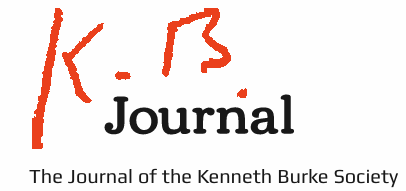
The Best of the Independent Rhetoric and Composition Journals represents the result of a nationwide conversation—beginning with journal editors, but expanding to teachers, scholars and workers across the discipline of Rhetoric and Composition—to select essays that showcase the innovative and transformative work now being published in the field’s independent journals. Representing both print and digital journals in Rhetoric and Composition, the essays featured explore issues ranging from classroom practice to writing in global and digital contexts, from writing workshops to community activism. Together, the essays provide readers with a rich understanding of the present and future direction of the field.
This submission form asks editors to supply all the necessary information and files for production. Please review the categories and prepare all the information and files before starting to complete it.

The WAC Journal invites article submissions. The longest-running national peer-reviewed journal dedicated to writing across the curriculum, The WAC Journal seeks scholarly work at the intersection of writing with teaching, curriculum, learning, and research. Our review board welcomes inquiries, proposals, and articles from 3,000 to 6,000 words.
We are especially interested in contributions that creatively approach a diverse range of anti-racist pedagogies, feminist rhetorics across the curriculum, intersectional contexts of feminism, and international WAC initiatives. Articles focusing on the ways WAC can be fostered in online courses are welcome as well. The WAC Journal supports a variety of diverse approaches to, and discussions of, writing across the curriculum. We welcome submissions from all WAC scholars that focus on writing across the curriculum, including topics on WAC program strategies, techniques and applications; emergent technologies and digital literacies across the curriculum; and WID.
The WAC Journal is an open-access journal published annually by Clemson University, Parlor Press, and the WAC Clearinghouse. It is available by subscription in print through Parlor Press at http://www.parlorpress.com/wacjournal and online in open-access format at the WAC Clearinghouse via http://wac.colostate.edu/journal/. Articles are accepted throughout the year on a rolling basis.
The peer review process is double-blind, which means all identifying information must be removed from the submission. Any submission notes must be included in the field provided for them, not in a separate cover letter or attachment. Submissions that aren't ready for double-blind review will be returned.

Update on Submissions 2025
KB Journal is migrating its website to a new system in 2024-2025, so we have suspended review of new submissions until that process has been completed in Fall 2025. You may still submit your work for consideration, but please be aware that the review process will not begin until Fall, 2025. Thanks for your patience! —The Editor
Mission Statement
KB Journal: The Journal of the Kenneth Burke Society takes as its mission the exploration of what it means to be "Burkean." We publish original scholarship that addresses, applies, extends, repurposes, or challenges the work of Kenneth Burke, which includes his books, articles, reviews, fiction, poetry, and music, as well as the growing body of research about his contributions to the unending conversation of history. KB Journal provides an outlet for integrating and critiquing the gamut of Burkiean studies in communication, composition, English, gender, literature, philosophy, psychology, rhetoric, religion, sociology, and technical writing. In light of this, Burke need not be the sole focus of a submission, but his ideas should be integral to the argument or performance.
Submission Guidelines
All scholarly approaches—historical, textual, empirical, pedagogical, performative—are welcome and encouraged. Each essay, hypertext, or other project submitted for possible publication will be anonymously reviewed by a minimum of two editors or experts from a particular area. Submissions for possible publication should be submitted through KBJ's submission interface at Submittable (see below for a button, also). Allowable formats include Word, RTF, or HTML. All article submissions should conform to the most recent style guide of the Modern Language Association, which covers all matters related to manuscript preparation not covered by KBJ guidelines. Authors must use in-text citations and provide a reference or Works Cited page at the end of the essay. Authors may also include explanatory endnotes, though such notes should be kept to a minimum and should not be automatically embedded in the text using Word's note function (they will need to be extracted). Hypertext or other projects requiring multiple files may be submitted as a Zip file. All essays may run a maximum of 7,000 words (not including the Works Cited or other endmatter). For projects that lie outside of these parameters, contact the editors.
Each submission should also include the author's or authors’ name(s), title, professional affiliation, mailing address, e-mail address, and telephone number. No author-identifying information should appear in the corpus of the text itself. Each submission should include a fifty-word abstract. Works submitted for review should not have appeared in any other published form. If any part of the submission has been presented at a colloquy, conference, or convention, the date and form of that presentation should be indicated in the submission notes. It is expected that such submissions will be substantially revised to make them suitable for publication in the journal.
Reviews
KB Journal seeks reviews of recent books focused on Burke and his ideas. Reviews should run a maximum of 2,000 words and include the book title in MLA format at the beginning of the review. The journal also seeks review essays discussing at least three books and/or articles that share a common Burke-related focus. Review essays should discuss how these works forward, enhance, or challenge Burke studies. Reviews essays should run a maximum of 4,000 words and should include the titles in MLA format at the beginning of the review.
